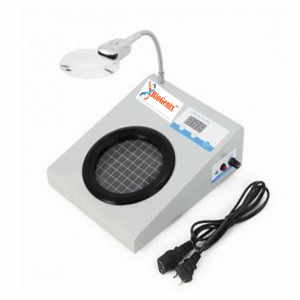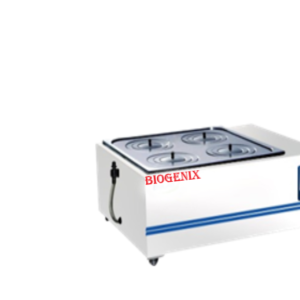The polymerase chain reaction (PCR) has become such a ubiquitous technology that professionals from a wide variety of disciplines have begun to depend on it. When selecting a PCR thermal cycler there are three key variables to consider: the number of wells available, the temperature gradient range, and programmability. The number of wells available determines the number of combinations of temperature gradients, MgCl2 concentrations and primer levels, which are the three parameters that determine amplification optimization. Within this matrix, the temperature gradient is a key feature in optimization, especially when using heterologous primers. The thermocyclers showcased herein typically offer a maximum gradient temperature range 15 – 30° C. Gradient thermal cyclers vary in temperature ramp speed between cycling steps as well as temperature stability and heated lid control. Other specifications include ease-of-use in programmability and the ability to store programs as part of method development for all basic PCR applications, including molecular cloning and sequencing, diagnostics and forensic analysis.
| Parent Category | P.C.R. INSTRUMENTS, |
|---|---|
| Subcategory | LABORATORY INSTRUMENTS AND EQUIPMENTS, |
Description
The polymerase chain reaction (PCR) has become such a ubiquitous technology that professionals from a wide variety of disciplines have begun to depend on it. When selecting a PCR thermal cycler there are three key variables to consider: the number of wells available, the temperature gradient range, and programmability. The number of wells available determines the number of combinations of temperature gradients, MgCl2 concentrations and primer levels, which are the three parameters that determine amplification optimization. Within this matrix, the temperature gradient is a key
feature in optimization, especially when using heterologous primers. The thermocyclers showcased herein typically offer a maximum gradient temperature range 15 – 30° C. Gradient thermal cyclers vary in temperature ramp speed between cycling steps as well as temperature stability and heated lid control. Other specifications include ease-of-use in programmability and the ability to store programs as part of method development for all basic PCR applications, including molecular cloning and sequencing, diagnostics and forensic analysis
| Brand | BioGenix® | ||
| Technology | Gradient | ||
| Capacity | 96 x 0.2 ml | 48 x 0.2 ml + 30 x 0.5 ml | 384 wells |
| Temperature Range | 0 100 | ||
| Display | Soft touch display touch Screen | ||
| Programs Avialable | 60000 | ||
| Max. Heating Rate | 5C/s | ||
| Max. Cooling Rate | 45C/s | ||
| Uniformity & Accuracy | ±0.1C | ||
| Display Resolution | 0.1C | ||
| Temperature Control | Block/Tube | ||
| Ramping Rate Adjustable | 0.1 5C | ||
| Gradient Uniformity | ±0.2C | ||
| Gradient Accuracy | ±0.2C | ||
| Gradient Temperature Range | 30 100C | ||
| Gradient Spread | 1 30C | ||
| Hot LID Temp. | 30 100C | ||
| Hot LID Height | Stepless Adjustable | ||
| No. of Programmer | 10000 | ||
| Max. No. of Step | 30 | ||
| Max. No. of Cycles | 99 | ||
| Time Increment/Decrement | 1 sec. 9 Min 59 Sec. | ||
| Temp. Increment/Decrement | 0.1 9.9C | ||
| Auto Data Protection | Yes | ||
| Hold at 4C | Forever | ||
| Dimensions (L x W x H) | 380 x 240 x 260 mm | ||













